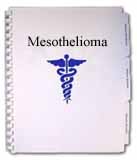Smoking and Lung Cancer
Smoking cigarettes causes lung cancer. Harmful substances, called carcinogens, in tobacco damage the cells in the lungs. Over time, the damaged cells may become cancerous. The likelihood that a smoker will develop lung cancer is affected by the age at which smoking began, how long the person has smoked, the number of cigarettes smoked per day, and how deeply the smoker inhales. Stopping smoking greatly reduces a person's risk for developing lung cancer.
The chance of developing lung cancer is increased by exposure to secondhand tobacco smoke -- the smoke in the air when someone else smokes. Exposure or secondhand smoke is called involuntary or passive smoking.
Individuals who smoked and were exposed to asbestos significantly increase their chances of obtaining lung cancer or mesothelioma.

